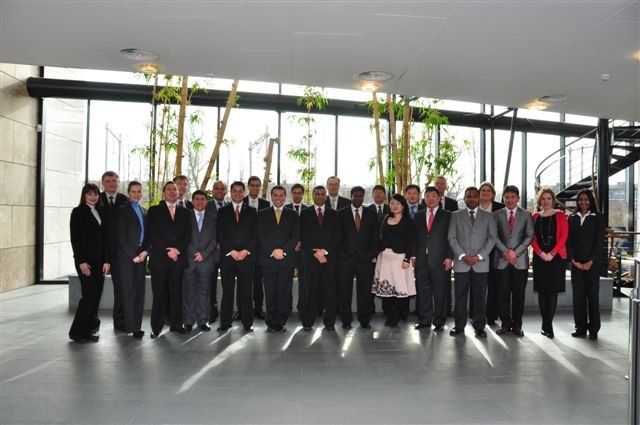Last Friday the teams from Banco Pichincha (Ecuador) and DFCC Bank (Sri Lanka), carried away the prizes in this year’s final of the Asset and Liability Management competition. For the fifth time, FMO in cooperation with DEG, Proparco and SIMARCH organized an Asset and Liability Management competition for banks from all kinds of emerging markets. This competition offers participants a unique chance to increase their ALM skills and it creates opportunities for knowledge exchange and networking among banking personnel of a wide range of nationalities.
26 banks from emerging markets had been invited to participate via internet. The competition comprised two phases. The first phase started in September 2011 and constituted of six rounds. The teams ran their own “virtual” bank in an online, simulated and changing business environment. The banks followed their own performance and took learned lessons into account for their next decisions. The top six of best performing banks had been selected and invited to come to FMO in The Hague for the three-day Final from February 22 to 24 2012.
The top six of best performing banks that were invited this year were:
- Banco BHD - Dominican Republic
- Banco Pichincha - Ecuador
- Banco Promerica - Guatemala
- DFCC Bank - Sri Lanka
- Kaspi Bank - Kazakhstan
- Khan Bank - Mongolia
After an exciting three days it was the Banco Pichincha team that was declared the winner in the category Best Shareholder Value Creation. DFCC Bank was awarded for having the Best Risk Management.
The ALM competition is part of FMO's continuous investment in the capacities of a number of our private sector clients. Building ALM capabilities is specifically important, because without strong ALM, local banks aren't best able to meet the needs of local entrepreneurs. FMO undertakes such efforts in support of its understanding that a healthy private sector is a key to sustainable development and to a stable country. That's why we invest in businesses in emerging markets, as well as their capacity to do business effectively.



